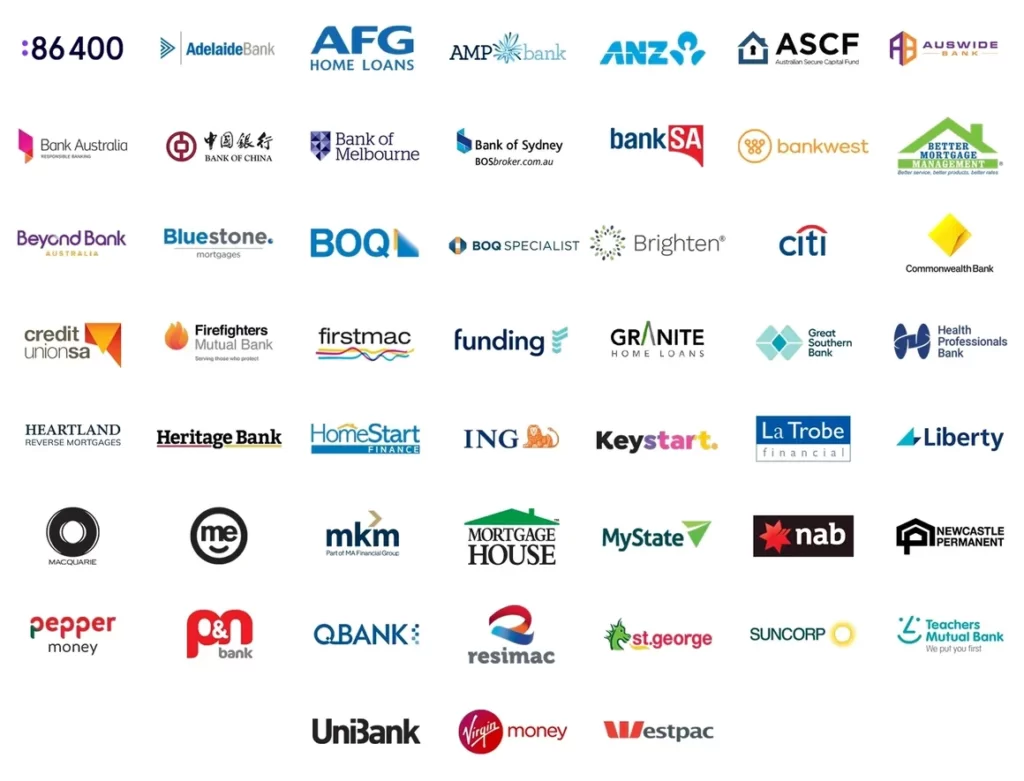Australian Expat Home Loans
Borrow up to 90% of the property value if you have a good job overseas.

Is a Higher Interest Rate Applicable?
In certain instances, individuals residing abroad may not be eligible for discounted home loans with certain banks. However, our expertise as specialist mortgage brokers often enables us to successfully negotiate a significant discount below the Bank Standard Variable (BSV) rate with several lenders. Generally, you shouldn’t anticipate a higher interest rate for an Australian mortgage unless you’re unable to provide proof of your foreign income.
Which Lenders Support Expat Mortgages?
This calculator is designed to determine your eligibility for an expat home loan. It evaluates the lending policies of the institutions on our panel, ensuring you are aware of the lenders capable of facilitating your mortgage approval for Australian property acquisitions.
Will Lenders Accept My Foreign Currency?
The primary consideration when earning income in a foreign currency is whether the currency is acceptable to lenders. Commonly accepted currencies include:
- United States Dollar (USD)
- Great Britain Pounds Sterling (GBP)
- Euro (EUR)
- Singapore Dollar (SGD)
- Canadian Dollar (CAD)
- United Arab Emirates Dirham (AED)
- Hong Kong Dollar (HKD)
- Japanese Yen (JPY)
- Swiss Franc (CHF)
- New Zealand Dollar (NZD)
- Chinese Renminbi (CNY) – Conditions apply
In most cases, we can secure loan approval for the above currencies. However, if your income is in a currency not listed, you may still qualify for a mortgage with certain restrictions and conditions, such as limiting your borrowing capacity to 80% of the property value (Loan To Value Ratio).
These currencies may include:
- Bahrain Dinar (BHD)
- Bruneian Dollar (BND)
- Danish Krone (DKK)
- Fijian Dollar (FJD)
- Indian Rupee (INR)
- Indonesian Rupiah (IDR)
- Kuwaiti Dinar (KWD)
- Macau Pataca (MOP)
- Malaysian Ringgit (MYR)
- Norwegian Krone (NOK)
If your currency is not listed, please contact us, as some of our lenders accept almost any currency. Keep in mind that investment policies, including accepted currencies, may change over time.
Will I Need a Deposit?
Australian expats purchasing property in Australia generally require a 10% deposit, in addition to extra funds covering property acquisition costs like stamp duty, legal fees, mortgage setup costs, and Lenders Mortgage Insurance (LMI). This deposit is usually expected in the form of genuine savings.
If you possess a larger deposit or already own property in Australia, you can utilize equity as a deposit. An alternative option is purchasing a property without a deposit, provided your parents own Australian property and can act as a guarantor for your home loan.
Here’s an example of property acquisition costs: Suppose you intend to buy a $600,000 investment property with a $72,000 deposit (equivalent to 88% of the property value). In Victoria, stamp duty amounts to approximately $31,000, transfer fees are $1,610, legal fees add up to $2,000, and bank fees typically amount to $500 (varies by lender). In this scenario, your total funds to complete would be $122,180, inclusive of your deposit.
How Can I Demonstrate My Income?
You can provide evidence of your income using the following methods:
- If your payslips or foreign tax returns are in English, they can be used as proof of your income.
- Most lenders typically require three months of bank statements showing your salary deposits.
- Several of our lenders have specialized non-resident departments with multilingual staff, so even if your documents require translation, it’s generally not a problem.
- Some lenders may request a valid work visa as part of their verification process. This requirement is usually waived if you are a dual citizen or can provide alternative evidence of your eligibility to work in that country.
What If I’m Self-Employed?
Securing income verification for self-employed expats can be more challenging, and only a few lenders accept such income sources. The ease of assessing overseas PAYG income can be contrasted with the complexities of determining the income earned by a self-employed Australian expat. Several factors come into play, including:
- Availability of an accountant
- Your country of residence
- Your income currency You may be eligible for a mortgage with certain lenders if you can provide the following:
- 2 years of personal and business tax returns
- 6 months of business bank statements
- An accountant’s letter verifying your income It’s important to note that some lenders may use Australian tax rates to assess your income, potentially reducing your borrowing capacity significantly, particularly if you reside in countries with lower tax rates, such as Hong Kong, Singapore, or the UAE, where income tax is not levied. Fortunately, we have lenders on our panel that employ foreign tax rates to calculate your borrowing capacity, relying on your Net Overseas income. However, these lenders will only consider foreign tax rates if tax withholding is visible on your payslips. This offer is applicable to specific countries, and it’s advised to reach out to us for the most current information.
What If I’m Paid in Multiple Currencies?
Many Australians working abroad earn income in more than one currency, particularly within multinational corporations. If both of these currencies are among the preferred or secondary currency lists mentioned earlier, some banks will consider these income sources. Keep in mind that each currency type will be subject to a different foreign exchange rate, potentially affecting your overall borrowing capacity. If your income sources are not in these lists, don’t worry – we may still be able to secure approval for an Australian expat home loan.
Various factors, such as exchange rate fluctuations, foreign tax rates, negative gearing benefits, and repayments on foreign debts, make calculating your borrowing capacity complex and variable among lenders.
Most lenders will use a percentage of your actual income, often between 60% and 90%. Additionally, they may apply Australian tax rates even if you’re residing in a country without income tax, and you might not receive negative gearing benefits. Since each lender has a different approach to assessing borrowing capacity, we can usually find a solution tailored to your situation.
What Exchange Rate Do Lenders Use?
When converting your foreign currency to Australian dollars, most lenders employ their own exchange rates, which are typically more conservative than the current market rate for your currency.
If your foreign currency isn’t on the preferred or secondary list, the lender may either not accept it or apply a reduced rate from XE Live Exchange Rates. The choice of exchange rate can significantly impact your borrowing power, depending on your currency. Contact us to explore options for negotiating with the lender on their method of foreign exchange.
Securing a Home Loan with a Foreign Citizen
When applying for a home loan and you’re married to or in a de facto relationship with a foreign citizen, your application may be assessed in three different ways:
- Both applicants may be assessed as Australian citizens.
- Both applicants may be assessed as foreign investors.
- The nationality of the highest income earner may determine how your loan is assessed. However, being assessed as a foreign investor can lead to only a fraction of your income being considered, requiring a larger deposit and potentially resulting in a higher interest rate with certain lenders. To avoid this, it’s advisable to apply with a lender that has favorable lending policies for your situation. Some lenders on our panel even accept bonus and commission incomes. To discover which banks will accept your specific situation, please reach out to us by calling 1300 401 847 or completing our free assessment form.
What About My Foreign Partner’s Salary?
In most cases, lenders will disregard the income of your partner if they are not an Australian citizen or Australian permanent resident (PR) holder. However, this policy is somewhat flexible, and we’ve helped many clients obtain approval by making exceptions. A lender may consider your spouse’s income in the following situations:
- They have a valid visa for Australia.
- They reside in Australia.
- They have connections to Australia, such as family or close relatives.
- You have children together.
- You are married or have been in a de facto relationship for over two years.
- You are the primary income earner. For a comprehensive discussion of your unique situation, it’s best to consult with our expat mortgage brokers by calling 1300 889 743 or by completing our free assessment form today.
One on Title, Two on Loan
When obtaining a home loan with a non-Australian citizen, you may encounter foreign citizen stamp duty. However, this additional cost can be potentially avoided if only the expat or Australian citizen is listed on the title of the loan while still borrowing with a foreign citizen or non-resident. This structure, although complex and associated with higher risk, is generally accepted by lenders for borrowers in a spousal or de-facto relationship. To explore the lending criteria and advantages of this setup, please refer to our dedicated “One on Title, Two on Loan” page.
Buying Property in Australia as an Aussie Expat
We’ve prepared a comprehensive guide for Australians living overseas, covering everything you need to know about purchasing property in Australia. This guide includes:
- The home loan application process.
- The entire property buying process, from application to settlement.
- An overview of the costs involved in buying a property.
- Frequently Asked Questions (FAQs).
Choosing Your Lender Carefully
Australian expatriates often encounter difficulties in meeting the requirements for loan approval. It’s essential to be aware that:
- Some banks may require you to present original payslips, tax returns, and other documents before approving your loan.
- Delays can occur if you choose a lender without a loan processing system designed to accommodate foreign addresses or phone numbers.
- Many lenders may not approve a loan for more than 80% of the property value.
- Some lenders might require you to sign a formal loan offer at the nearest Australian Consulate.
- Several lenders charge higher interest rates if you are outside of Australia. Reach out to us at 1300 401 847 or complete our free assessment form, and our experts can find the best solution for your situation.
Aussie Expat Home Loan FAQs
Do I Need a Power of Attorney (POA)?
If you’re residing overseas, it’s helpful to have a trusted family member, friend, or solicitor who can sign documents on your behalf using a Power of Attorney (POA). However, some lenders may have specific requirements for the type of POA they accept, such as requiring a POA with a solicitor or a family member. It’s a good practice to consult your mortgage broker about the lender’s requirements before making a decision.
When Do I Need to Visit the Australian Embassy?
In any case, you’ll need to have your identification certified at the Australian embassy or consulate in the country where you are residing. If the lender does not accept a POA for your mortgage loan documents, you’ll have to visit the Australian embassy to witness the signing of the mortgage title. If you’re purchasing a property as joint tenants, only one of you needs to go to the embassy as long as you can provide your partner’s passport. The embassy is certifying the authenticity of the document, not the identity of the person requesting certification.
Will the Australian Embassy Charge Me?
The Australian embassy will impose a service fee for certifying or witnessing these documents. The exact fees vary depending on your country of residence, so it’s advisable to check the specific fee schedule for your location. Keep in mind that the fees can amount to hundreds of dollars.
Is Australian Government Approval Required?
No, Foreign Investment Review Board (FIRB) approval is not required, even if you are purchasing with a spouse who is not an Australian citizen. Please refer to the FIRB guidelines for more detailed information on this matter.
Will I Have to Pay the Foreigner Stamp Duty Surcharge?
A surcharge on stamp duty and, in some cases, land tax applies to specific foreigners and visa holders depending on the state in which you wish to purchase property. Fortunately, Australians living abroad are exempt from these surcharges, even if they are not in the country at the time of contract exchange. The rules regarding this exemption may vary, so it’s advisable to double-check with your relevant State Revenue Office. Particularly, if you’re buying with a partner who is a non-Australian citizen, you may want to consider purchasing the property in your name. If you are a permanent Australian resident, this is an even stronger reason to consult with your state revenue authority.
When Is the Right Time to Invest in Australian Real Estate?
In real estate investing, timing the market is less important than having time in the market. The real estate market may not always behave as expected during economic downturns, and different suburbs and regions can experience fluctuations at various times. While you can’t predict the market, you can position yourself well by acting swiftly in growth markets. In Australia, market volatility has historically been relatively low since 2001.
Australian Expat Case Study
The Situation: Jim relocated to Shanghai, China, for his role as a department head at a multinational company. His profession required frequent travel, and he would visit Australia during his time off. Despite having good serviceability, assessing his foreign income (HKD) presented challenges.
The Solution: In Jim’s case, competitive pricing and pre-approval were top priorities for our broker. Jim’s income was unaffected by the pandemic and was paid into his Australian account after tax. Due to stricter policies resulting from China-Hong Kong tensions, there was a loan ban on Hong Kong residents. However, Jim was not a Hong Kong resident; only his employer was registered there.
The Result: Leveraging the strengths of Jim’s application and capitalizing on a potential loophole, Jim secured pre-approval, a mutually beneficial outcome for Jim and us!
We Are Australian Expat Mortgage Specialists!
As mortgage brokers specializing in assisting people living overseas to buy property in Australia, we offer several advantages:
- We have helped numerous customers, including Australian citizens or dual citizens living overseas, navigate the Australian property market.
- We select a lender that accommodates your unique situation, simplifying the loan application process.
- Most of our services are free.
- We work with over 50 banks and lenders. Having an expert mortgage broker in Australia can make a significant difference in your expat home loan journey. Please call us at 1300 401 847 or inquire online, and our team will reach out to discuss how we can assist you.
Related Topics
Why Choose Clear Pacific Capital?
Our Services
Our Approach to Finding the Ideal Solution for You
We begin by gaining a comprehensive understanding of your current circumstances and your long-term objectives. Our process is designed to provide you with a tailored recommendation, and it's as simple as following these few steps:
1
Start by filling out our free assessment form or giving us a call.
2
Our team will carefully evaluate your unique financial situation.
3
We thoroughly examine the various options available through our network of trusted lenders.
4
The end result? We'll pinpoint the most fitting and advantageous home loan offers for you.
Clients Love
Testimonial
Highly recommended. Irfan is an incredibly knowledgeable and professional broker. Irfan was able to help us every step of the way in our journey to buying our first home.






